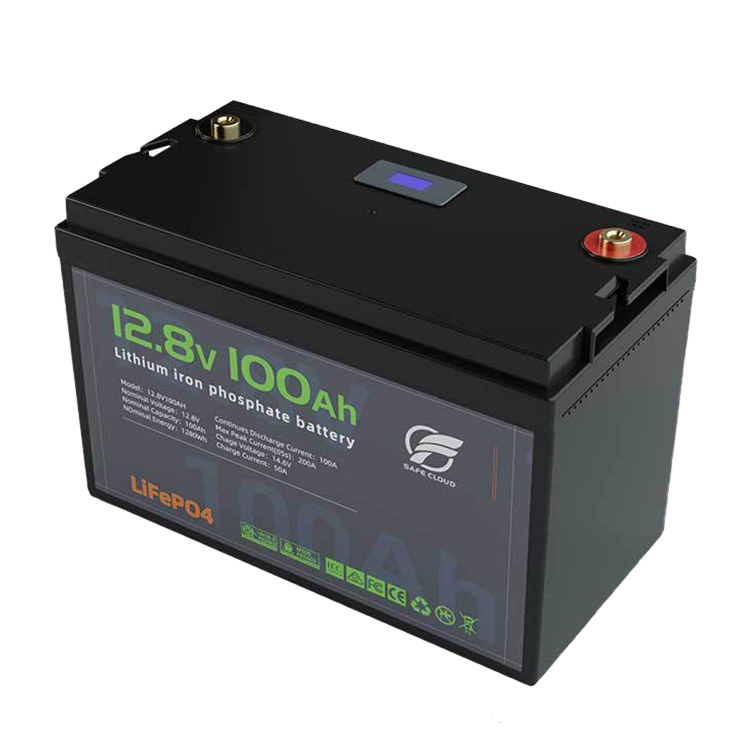The rechargeable lithium iron phosphate car battery (often abbreviated as LiFePO₄ or LFP) is a type of lithium-ion battery that uses lithium iron phosphate as the cathode material. Compared to traditional lithium-ion batteries using cobalt-based materials, the rechargeable lithium iron phosphate car battery is more stable at high temperatures and less prone to thermal runaway.

One of the important safety characteristics of the rechargeable lithium iron phosphate car battery is its high thermal and chemical stability. Even under abusive conditions such as overcharging, mechanical damage, or short circuits, it is much less likely to catch fire or explode. This makes it an appealing choice for applications where safety is a priority.
Performance Without Compromising Stability
While the energy density of the rechargeable lithium iron phosphate car battery is typically lower than that of lithium nickel manganese cobalt oxide (NMC) or lithium cobalt oxide (LCO) batteries, it offers stable voltage output and a long cycle life, which directly contribute to safe and predictable performance over time.
The rechargeable lithium iron phosphate car battery is known to support more than 2,000 to 3,000 charge cycles, with many users reporting consistent output well beyond that. Its durability minimizes the risk of unexpected degradation, which is often a factor in battery malfunctions. This consistent performance translates into fewer maintenance needs and less risk of unpredictable failure.
Safer at Higher Temperatures
Heat management is a central concern in automotive battery safety. The rechargeable lithium iron phosphate car battery is more tolerant of high temperatures, making it less susceptible to overheating during operation or charging. Unlike other lithium-ion chemistries that begin to degrade or become unstable above 60°C (140°F), the rechargeable lithium iron phosphate car battery can maintain structural integrity at temperatures up to 80°C or more.
In regions with hot climates or for vehicles under heavy-duty use, this improved thermal tolerance significantly reduces the risk of overheating or fire. This also makes the battery suitable for under-the-hood installations where heat from the engine bay is a concern.
Reduced Risk of Thermal Runaway
One of the standout features of the rechargeable lithium iron phosphate car battery is its resistance to thermal runaway, a chain reaction that can cause fire or explosion in batteries when damaged or overheated. The iron phosphate chemistry is inherently stable and less reactive, which helps isolate any potential failure and prevent it from escalating.
In practical terms, even if the rechargeable lithium iron phosphate car battery experiences internal short circuits, the result is usually limited to cell failure rather than catastrophic thermal events. This is a significant benefit in electric vehicle safety, where battery fires can have severe consequences.
Environmentally Safer Composition
From a materials perspective, the rechargeable lithium iron phosphate car battery contains no cobalt or nickel, both of which are associated with environmental and ethical concerns. The absence of these metals also contributes to a more chemically stable cell structure. In the event of a failure or disposal, the rechargeable lithium iron phosphate car battery poses fewer environmental hazards compared to other lithium-ion chemistries.
Applications and Safety Regulations
Automakers are increasingly adopting the rechargeable lithium iron phosphate car battery for entry-level electric vehicles and commercial fleets. This trend is due in part to the battery's safe handling characteristics, lower cost per cycle, and suitability for mass production.
The rechargeable lithium iron phosphate car battery also meets many global safety standards, including UN38.3 for transportation, UL 2580 for electric vehicles, and IEC certifications for energy storage systems. Manufacturers who use the rechargeable lithium iron phosphate car battery are generally required to integrate battery management systems (BMS) that further improve safety through temperature monitoring, cell balancing, and current regulation.